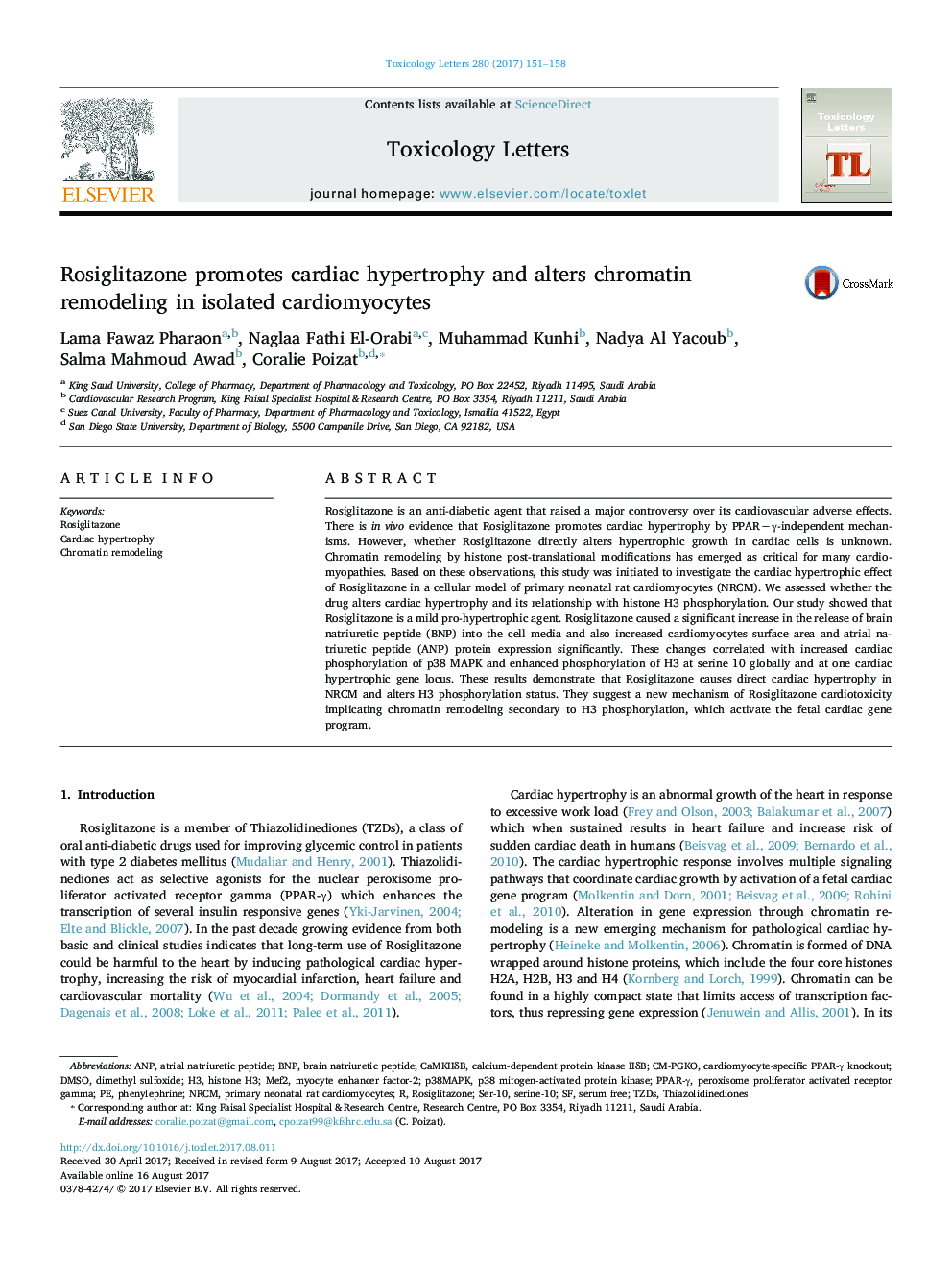| کد مقاله | کد نشریه | سال انتشار | مقاله انگلیسی | نسخه تمام متن |
|---|---|---|---|---|
| 5562032 | 1562592 | 2017 | 8 صفحه PDF | دانلود رایگان |

- Rosiglitazone promotes cardiac hypertrophy in primary neonatal rat cardiomyocytes.
- Rosiglitazone increases histone H3 Ser-10 phosphorylation globally and at the promoter region of a hypertrophic gene.
- Chromatin remodeling by histone post-translational modifications could play role in Rosiglitazone- induced cardiac hypertrophy.
- Epigenetic changes may explain part of the cardiotoxicity of a potent anti-diabetic drug.
Rosiglitazone is an anti-diabetic agent that raised a major controversy over its cardiovascular adverse effects. There is in vivo evidence that Rosiglitazone promotes cardiac hypertrophy by PPARâγ-independent mechanisms. However, whether Rosiglitazone directly alters hypertrophic growth in cardiac cells is unknown. Chromatin remodeling by histone post-translational modifications has emerged as critical for many cardiomyopathies. Based on these observations, this study was initiated to investigate the cardiac hypertrophic effect of Rosiglitazone in a cellular model of primary neonatal rat cardiomyocytes (NRCM). We assessed whether the drug alters cardiac hypertrophy and its relationship with histone H3 phosphorylation. Our study showed that Rosiglitazone is a mild pro-hypertrophic agent. Rosiglitazone caused a significant increase in the release of brain natriuretic peptide (BNP) into the cell media and also increased cardiomyocytes surface area and atrial natriuretic peptide (ANP) protein expression significantly. These changes correlated with increased cardiac phosphorylation of p38 MAPK and enhanced phosphorylation of H3 at serine 10 globally and at one cardiac hypertrophic gene locus. These results demonstrate that Rosiglitazone causes direct cardiac hypertrophy in NRCM and alters H3 phosphorylation status. They suggest a new mechanism of Rosiglitazone cardiotoxicity implicating chromatin remodeling secondary to H3 phosphorylation, which activate the fetal cardiac gene program.
Journal: Toxicology Letters - Volume 280, 5 October 2017, Pages 151-158